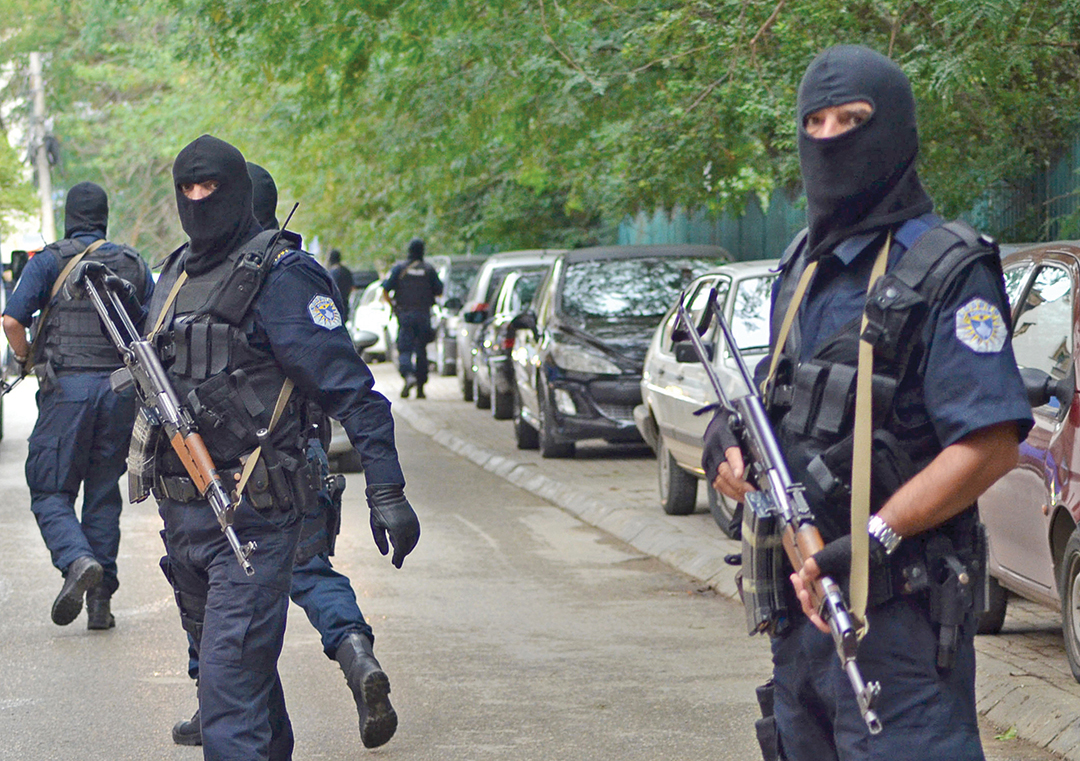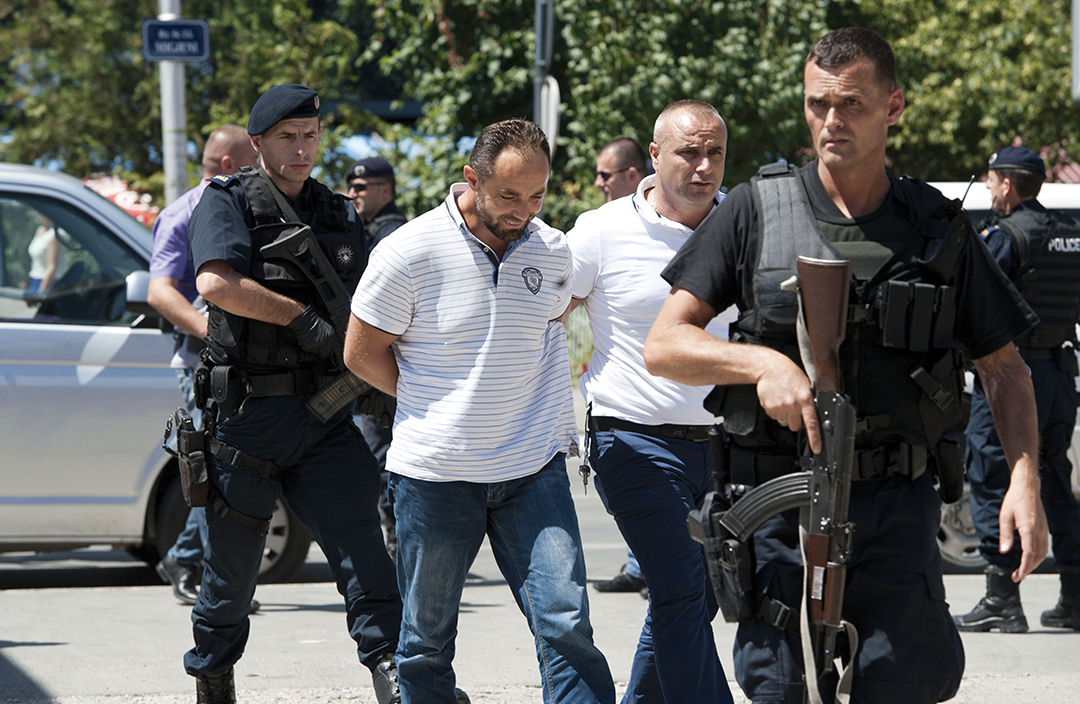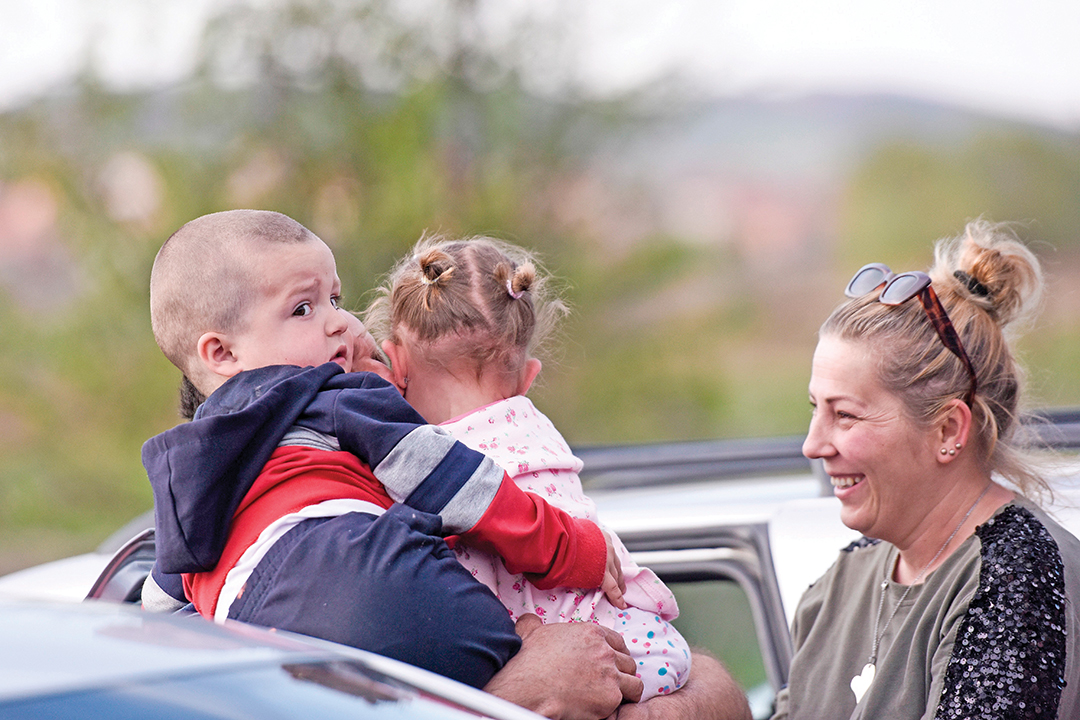How Kosovo rehabilitates repatriated Islamic State fighters
By Ramadan “Dani” Ilazi, Teuta Avdimetaj and Skënder Perteshi, the Kosovar Centre for Security Studies
Since its declaration of independence on February 17, 2008, Kosovo has made great strides in grounding its liberal-democratic framework, with vital support from the United States and the European Union. Although a young European democracy, Kosovo has developed a pluralistic political scene and a strong civil society. However, it has also faced significant challenges, including violent extremism. In the aftermath of the collapse of the Islamic State (IS), the government of Kosovo expressed willingness to repatriate its citizens being held in Kurdish-run camps for IS members in Syria. Kosovo’s readiness to pursue a policy of repatriation in addressing the foreign fighter threat stands in stark contrast with other European countries that are hesitant or directly oppose the idea.
Questions about Kosovo’s ability to effectively prosecute those suspected of crimes, navigate the logistical challenges associated with their return, and manage the security threat that returnees pose loom large in the minds of decision-makers. Some EU countries, among others, fear that bringing back their IS-affiliated citizens will lead to a public backlash with considerable political ramifications and are instead opting for an approach that leaves these individuals — mostly women and children — in a state of limbo. In spite of the challenges, many experts view repatriation as the more appropriate response to prevent new cycles of violence, even more so since the disease-ridden and overcrowded detention camps are breeding grounds for further radicalization. There are also serious considerations about a state’s moral obligation to take responsibility for its own citizens. In this vein, Kosovo’s then-Minister of Justice Abelard Tahiri declared in 2019 that Kosovo would not abandon its citizens regardless of their past actions and that it cannot allow them to be a threat to the West and to our allies.
That year, Kosovo, with U.S. assistance, repatriated 110 individuals, raising the total number of returnees to 200, including those who between 2012-2018 returned from Syria and Iraq through informal channels. Of the 403 Kosovo citizens who left for the conflict zones in Syria and Iraq, 255 are considered to be foreign terrorist fighters (FTF). Yet, repatriation is only an initial step in the long-term effort necessary to successfully rehabilitate and reintegrate former FTFs and their family members — an approach that Kosovo is determined to follow, complementary to prosecution.
Punitive approaches
In response to the growing number of its citizens traveling to the foreign conflicts in Syria and Iraq, alongside terrorist groups such as IS, in 2015 the Kosovo Assembly adopted the Law on Prohibition of Joining Armed Conflicts Outside State Territory of the Republic of Kosovo. This law establishes heavy penalties for those participating, inciting, funding or not reporting efforts to join a foreign conflict. Participation in armed conflicts of other countries is punishable by up to 15 years in prison, while recruiting and organizing participation in foreign conflicts are also punishable by up to 15 years in prison. Calling or inciting others to join foreign armed conflicts are punishable by up to five years in prison. Additionally, the law criminalizes funding for the purpose of recruiting and organizing Kosovo citizens to join foreign armed conflicts.

From a legal perspective, all returnees from the war zones of Syria and Iraq are inherently suspects and are therefore required to undergo legal screening to determine if they committed an offense. The European Commission considers Kosovo’s legal framework to be in line with the EU acquis and international instruments on anti-terrorism, including United Nations Security Council Resolution 2178 of 2014. Kosovo’s legal framework enables the prosecution of cases, though challenges persist in obtaining and verifying evidence related to the suspects’ roles in the foreign conflict zones.
In 2014, the Kosovo Correctional Services (KCS) started receiving the first FTFs. The KCS had previous experience with religiously radicalized individuals, or violent extremist offenders (VEOs), who were incarcerated, but the battle-hardened FTFs introduced a new set of challenges. With the support of the U.S. Justice Department’s International Criminal Investigative Training Assistance Program (ICITAP), the KCS conducted an internal assessment of its correctional services, which found that the incarcerated FTFs were not separated from the general prison population. This made the rehabilitation process more difficult.
The assessment also noted the need to develop the capacities of KCS personnel for dealing with FTFs and ICITAP supported training programs. By 2016, the KCS had rehabilitation and resocialization (R&R) programs in place for handling FTFs. These programs sought to support FTF deradicalization, which primarily involves persuading FTFs to renounce their extremist belief systems.
To avoid making the FTFs feel targeted by the program, and therefore risk their voluntary participation, R&R programs have been open to the wider prison population and include courses to support completion of high school as well as vocational training in areas such as carpentry, water supply systems and welding. Other courses work on communication skills to facilitate FTF resocialization. However, it is not clear how many of the vocational training participants were actual FTFs and if it has been successful.
Ideology is the quintessential barrier to deradicalization and efforts to rehabilitate VEOs who maintain strong commitment to the beliefs and religious interpretation promoted by radical imams and reinforced by IS. Addressing it effectively is a complex undertaking. From the security perspective, the commitment of radicalized individuals to use violence to promote their beliefs is a major concern. In 2018, the Ministry of Justice and the Islamic Community of Kosovo (ICK) cooperated to implement a new program in the KCS for deradicalizing FTFs. The ICK provides verified imams to conduct religious lectures in the KCS, while the Justice Ministry organizes the logistics. The purpose of this program is to debunk radical, religiously laced ideologies that influenced FTFs to join the foreign conflicts in Syria and Iraq.

Kosovo’s FTF repatriation approach merits recognition; however, there have been important shortcomings and challenges, both technical and with aspects of program implementation and effectiveness. By 2016, when the KCS properly developed capacities and established its FTF repatriation programs, the majority of those incarcerated had been released. A number of repatriated FTFs rejected Kosovo’s institutions and laws out of ideological conviction, which made it harder to ensure their cooperation and participation in deradicalization programs. Participation of FTF inmates in the KCS programs has been very low. Based on interviews with FTFs, as well as public officials, FTFs see Kosovo’s institutions, and especially its security mechanisms, as an extended arm of the U.S. government that does the bidding of the U.S. Some of the FTFs believe that they are still fighting for their extremist ideology, even after returning to Kosovo.
Politics represents an important lesson for Kosovo’s experience. While political will has been essential to repatriate Kosovars and focus on their R&R, in one case it has had a negative impact. Civil society actors and public officials maintain that the involvement of politics, specifically the need for politicians to publicize deradicalization efforts, often has a negative impact on the process. One example is the cooperation with the ICK to shift VEOs away from radical ideologies. The cooperation had been widely promoted, and public statements were made that the imams who will conduct the deradicalization lectures would be verified by the Kosovo Intelligence Agency. This damaged the imams’ credibility before they even got to work. According to government officials, some incarcerated returnees saw the imams as colluding with the government and the security institutions.
Another important shortcoming is a lack of mechanisms to follow up with VEOs who are processed out of the system. Based on interviews with public officials, Kosovo’s approach in this regard is highly securitized, meaning that mainly the security apparatus is involved in R&R while there are no mechanisms in place for social workers or other professionals to follow up with former FTFs post-prison release. Some former FTFs remain committed to their system of beliefs, including the legitimacy of violence in pursuit of their goals or against the so-called enemies of Islam after they are processed out of the correctional services. Additionally, they remain committed in their rejection of the institutions and laws of Kosovo, potentially giving them cause to seek to change the status quo. This shows that deradicalization efforts in the correctional services, while very important, can be only part of the process: It is essential that these efforts continue after release from prison. Perhaps, different approaches from nongovernmental actors can be more effective in reaching radicalized individuals.
In the broader efforts to rehabilitate and reintegrate returnees, it is necessary to also consider how gender dynamics influence the radicalization process as well as prospects for successful R&R programs. In Kosovo, all women who have returned from the conflict zones in Syria and Iraq are being prosecuted. However, when charged, female returnees tend to receive more lenient sentences, which may indicate difficulties in determining their culpability but may also signify differential treatment primarily based on their sex. Because gender stereotypes are still pervasive, such as perceiving women as inherently more peaceful, there is a tendency to view women’s involvement and experiences in violent extremism through a narrower lens. There are documented cases in which women were coerced to accompany their husbands or other male relatives into foreign conflicts and should thus be treated as victims, but women’s involvement in violent extremism can take many forms (e.g., facilitators, perpetrators, preventing radicalization). Disregarding their personal agency can create a security blind spot. Individual circumstances for radicalization, involvement in and disengagement from violent extremist groups should take precedence in informing the R&R response.
Social and economic reintegration
Kosovo has adopted a number of measures to support the social and economic reintegration of its repatriated citizens. The Division for Prevention and Reintegration of Radicalized Persons (DPRRP) was established to coordinate government reintegration support, operating under the Department for Public Safety of the Ministry of Internal Affairs. Kosovo is the first country in the Balkan region, if not beyond, to have established a specialized unit to deal only with reintegrating citizens who participated in foreign conflicts, in this case Syria and Iraq. The DPRRP has conducted a number of activities to support societal reintegration, including training parents on how to approach their children, efforts to include returnee families in social welfare programs so they receive monthly stipends, as well as coordinated efforts with the Ministry of Education, Science and Technology (MEST) to register children in school. DPRRP has tried to coordinate with the KCS to respond to the challenges for inmates who are paroled or have concluded their prison term, but according to DPRRP, these efforts have not been very successful.
Besides establishing the DPRRP, the Kosovo government’s approach is cross-sectorial. The MEST has spearheaded efforts to register repatriated children in the school system. In April 2019, there were 74 children among the 110 Kosovars who were repatriated from Syria. While children ages 6-7 have been registered in the first grade, there were cases of children ages 12-13 who had not had any formal education. MEST enrolled them in the technical learning track, enabling them to start from the first grade and catch up with their peers. MEST has also conducted training for schoolteachers on the subject of preventing violent extremism. A small number of children also need support to improve their understanding and ability to speak the Albanian language, and this too has been provided.

AFP/GETTY IMAGES
The Ministry of Health plays an important role in reintegration. Medical care has been provided to all repatriated citizens. The April 2019 group included six children who had injuries and several women who had health complications. One person had a liver infection, requiring a liver transplant, and since it could not be treated in Kosovo, the government organized the needed operation in Turkey. The University Hospital and Clinical Service of Kosovo has assigned a psychiatrist to coordinate the hospital’s role in reintegration efforts. Staff have helped assess the mental health needs of the repatriated citizens and supported treatment. Government support includes home visits, and individual and family sessions. The Ministry of Labour and Social Welfare includes repatriated citizens in social welfare programs.
Local involvement in the reintegration process is crucial. Some municipalities established referral mechanisms as part of the action plan for Kosovo’s national Strategy on Prevention of Violent Extremism and Radicalization Leading to Terrorism 2015-2020. The purpose of these mechanisms is to support deradicalization through early detection and prevent engagement in violent extremism, but it has not been utilized in the process for repatriated citizens from Syria and Iraq. According to officials from the Ministry of Internal Affairs, the pilot referral mechanism in the municipality of Gjilan in southeastern Kosovo has shown great potential, with 12 cases of successful early detection and rehabilitation of young adults who were on a trajectory to radicalization. The government plans to move forward and establish similar mechanisms in other municipalities. Some municipalities have shown self-initiative. In 2017, South Mitrovica, in cooperation with a local civil society organization, Community Building Mitrovica, developed a municipal strategy for countering and preventing violent extremism among young people.
There are several challenges with social and economic reintegration support of repatriated citizens. One of these is coordination among institutions, and especially with municipal authorities. Much reintegration support focuses on repatriated citizens who were not FTFs. Therefore, former FTFs who are processed through correctional services are not covered. There is also a need to extend reintegration programs to all women returnees with a focus on supporting their economic self-sufficiency and addressing stigmas. This will require the identification of intervention/training programs that are suitable for the returnees but also take into consideration their level of radicalization.
Of particular concern is the marginalization of repatriated children, especially the older ones, who were raised in a different cultural and societal context and experience difficulties integrating. Civil society has implemented important intervention programs to reach out to these children, help them to re-socialize and bring them out of isolation. For instance, the Kosovar Centre for Security Studies has organized a number of activities with children repatriated from Syria to facilitate their integration into society by fostering communication and critical thinking skills. Even when interacting with child returnees, it is important to be mindful of how factors such as gender may have influenced their upbringing and experience in IS-controlled territory, including their level of indoctrination or exposure to violence. It is important to mainstream a trauma-informed approach across institutions to ensure that child returnees grow up in a safe and secure environment, conducive to their healthy development and free from violence.
Civil society organizations in Kosovo continue to have limited engagement with supporting the reintegration of repatriated citizens from Syria and Iraq, although they have increasingly assumed more responsibility. One area where the partnership between government and civil society can be helpful is in ensuring gender-responsive policies throughout all stages of the design and implementation of rehabilitation and reintegration programs.
Conclusion
Kosovo has demonstrated the necessary political will to address the threat of violent extremism and prevent the country from becoming a safe haven for terrorists, but its ultimate effectiveness hinges upon a number of measures that require long-term efforts, including the successful rehabilitation and reintegration of former FTFs and their family members. Kosovo amended its legal and institutional framework to facilitate the prosecution of terrorism-related suspects, which was critical to bringing individuals to justice and creating a deterrent effect. Importantly, it acknowledged that the complex issue of radicalization and violent extremism requires a multi-sectorial approach with concerted and coordinated efforts among stakeholders within the society. In repatriating its citizens from the foreign conflict zones in Syria and Iraq, Kosovo set an important example for the region and beyond that, even as a young state with limited resources, it will live up to its moral and constitutional obligations to its citizens and international partners.
Thus far, Kosovo has put in place rehabilitation and reintegration programs that are promising but continue to face shortcomings. Interventions aimed at dissuading people from engaging in violence and renouncing radical ideologies are being implemented in prison, but concepts such as deradicalization are inherently problematic and often produce limited results. Notably, interinstitutional coordination needs to improve to better align efforts and resources for rehabilitation and reintegration processes at national and local levels. Moreover, these programs need to take into consideration the individual circumstances of the radicalized, such as age and gender, to ensure that interventions correspond with individual needs and experiences.
In the backdrop of a global pandemic that has left many countries struggling to manage the health risks and keep their economies afloat, Kosovo faces the challenge of sustaining rehabilitation and reintegration programs in the long run. Thus, strengthening partnerships with local communities, the families of those affected by violent extremism and civil society writ large is key to ensure the provision of services and the maintenance of a social support system for those undergoing rehabilitation and reintegration.


Comments are closed.